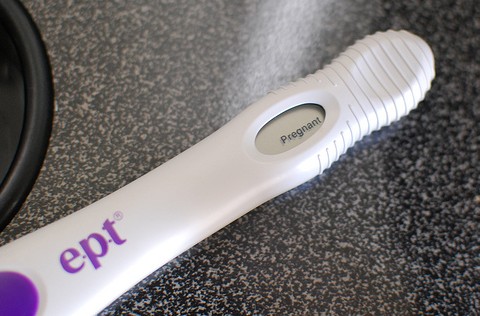hCG and Your Pregnancy
The role of hcg, or human chorionic gonadotropin, in pregnancy is a very important one. This hormone is the primary hormone of pregnancy and is produced by the cells of the placenta. Shortly after conception and implantation, this hormone is produced in small amounts and the level should double every two to three days. A value below 5 mIU/ml (mIU/ml is milliinternational units and is the unit of the hcg hormone value) is considered negative. Values above 25 mIU/ml are generally positive.

This is also the hormone detected by home pregnancy tests and the blood testing used in your physicians office. Depending on the sensitivity of the home urine test, you may be able to have a positive home pregnancy test up to six days before your missed period. Keep in mind that just because you have a negative pregnancy test before your missed period that you might still be pregnant. Implantation can occur up to ten or eleven days after fertilization and the test will not be positive until a few days after this. If your test is negative and you miss a period, retest in a few days to be sure.
There is a tremendous amount of variability in hcg levels; so it’s important to not be too reliant on a single hcg level. As long as the value doubles every two to three days, it is an encouraging sign for the pregnancy. Once the value reaches approximately 10,000 mIU/ml, the level will begin to plateau and not rise as rapidly ““ this is perfectly normal. Generally speaking, a sonogram should show the pregnancy once the hcg value is around 1,000 mIU/ml, but most physicians will wait until at least 6 weeks of pregnancy regardless of hcg values.
HCG Abnormalities
In addition, hcg levels can indicate pregnancy abnormalities: